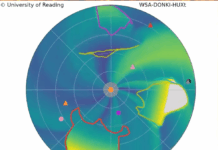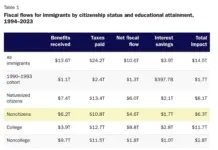
- It is a system that is focused on closing the fertiliser loop by using waste, and reducing the dependence on inputs by creating healthy soil and diversity of produce.
- It is also responsible for its waste, it aims not to pollute the surrounding environment, i.e. neither with excess nitrogen released into the water systems, nor weed seed into any natural systems.
- It uses design to minimise the gardeners chores and energy input. Repetitive and mundane hard work is the joy of few people doing permaculture. Variety and observation keep people engaged and excited about growing food. Permaculture activists are motivated by reducing their ecological footprint and developing a varied healthy lifestyle. Permaculture needs to engage all people of different ability, not just young strong people who can shovel compost.
- It aims to imitate nature. Visually this is the most noticeable difference between organic gardening and permaculture. In permaculture gardens (home systems is the more holistic term) there is rarely bare soil, the conservation of soil and water is a high priority. There is a more complex use of space. Plants are allowed to set seed and are interplanted for pest control. You are unlikely to see plants in rows.
- The permaculture system aims to harvest and maximise water, sun and other natural energies, e.g. wind, dust, leaves, bird droppings.
- The permaculture system aims to provide nutritious food and habitat for people AND native animals and birds.
What’s the difference between Organic Farming and Permaculture?
Basically, Permaculture uses organic gardening and farming practices but it goes beyond these practices and integrates the garden and home to create a lifestyle that impacts less on the environment.
Organic Farming promotes the use of natural fertilisers, making use of the natural carbon cycle so that waste from plants becomes the food (fertiliser) of another. In organic farming however, as with ALL farming, minerals are being lost from the farm every time a truck load of produce is carted to market.
Permaculture goes one step further. Permaculture brings production of food closer to consumers and the consumer’s wastes back into the cycle. It also reduces the energy wasted in transporting the foods by producing the foods where the people are. In permaculture the people contribute in their daily life toward the production of their food and other needs.
When is Permaculture not organic?
There will be times when a permaculture system is not strictly organic because it is using local resources rather than importing certified organic resources or perhaps the designer wants to increase diversity by bringing in unusual plants/seeds from another source that is not organic.
Re-purpose local resources
This is not usually due to an intentional use of pesticides, but often due to the use of a by-product that would otherwise be wasted. We could use old shoes as pots for plants, an old truck tyre/tire to hold the edges of a pond. Sometimes the choices are difficult and we have to do a quick cost/benefit analysis.
Permaculture Can Convert A Resource
We would need to weigh the benefit of a using a free local waste (ie. horse manure) versus supporting a good organic supplier who may be in another country. When we design well, the permaculture system can act as a cleanser or processing agent. Sometimes, we can transform then utilise a polluted waste (within what is realistic achievable). In the case of the horse manure, we could ask the owner about their anti-worming medication, check that it can be broken down by high-temperature composting then go about re mediating it before using it. Good permaculture design will aim to have a better output than input. Organic gardening may not have checks to reduce the system’s impact on the wider natural system.
Source(s): http://www.permaculturevisions.com/
Disclaimer: We at Prepare for Change (PFC) bring you information that is not offered by the mainstream news, and therefore may seem controversial. The opinions, views, statements, and/or information we present are not necessarily promoted, endorsed, espoused, or agreed to by Prepare for Change, its leadership Council, members, those who work with PFC, or those who read its content. However, they are hopefully provocative. Please use discernment! Use logical thinking, your own intuition and your own connection with Source, Spirit and Natural Laws to help you determine what is true and what is not. By sharing information and seeding dialogue, it is our goal to raise consciousness and awareness of higher truths to free us from enslavement of the matrix in this material realm.
 EN
EN FR
FR




























Such a great and helpful information! I’m planning to try some permaculture techniques this year. Glad to read your post, it’s very informative and I find it quite helpful.Definitely recommending your ideas to some friends. Thank you for sharing!
thank you for good info…